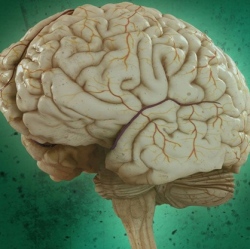
It’s a question that’s perplexed philosophers for centuries and scientists for decades: where does consciousness come from? We know it exists, at least in ourselves. But how it arises from chemistry and electricity in our brains is an unsolved mystery.
Neuroscientist Christof Koch, chief scientific officer at the Allen Institute for Brain Science, thinks he might know the answer. According to Koch, consciousness arises within any sufficiently complex, information-processing system. All animals, from humans on down to earthworms, are conscious; even the internet could be. That’s just the way the universe works.
"The electric charge of an electron doesn’t arise out of more elemental properties. It simply has a charge," says Koch. "Likewise, I argue that we live in a universe of space, time, mass, energy, and consciousness arising out of complex systems."
What Koch proposes is a scientifically refined version of an ancient philosophical doctrine called panpsychism — and, coming from someone else, it might sound more like spirituality than science. But Koch has devoted the last three decades to studying the neurological basis of consciousness. His work at the Allen Institute now puts him at the forefront of the BRAIN Initiative, the massive new effort to understand how brains work, which will begin next year.
(Read original article for full interview)
